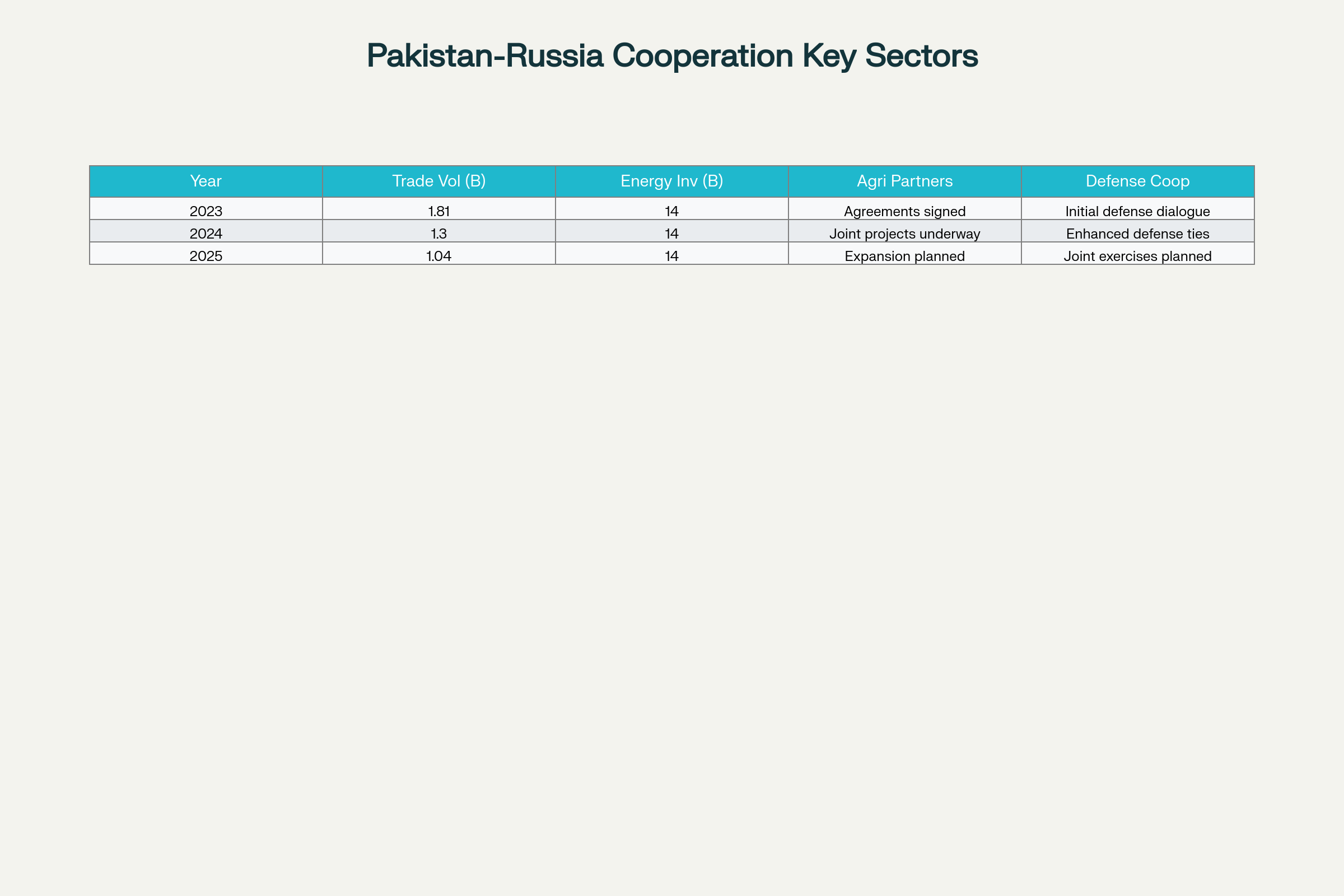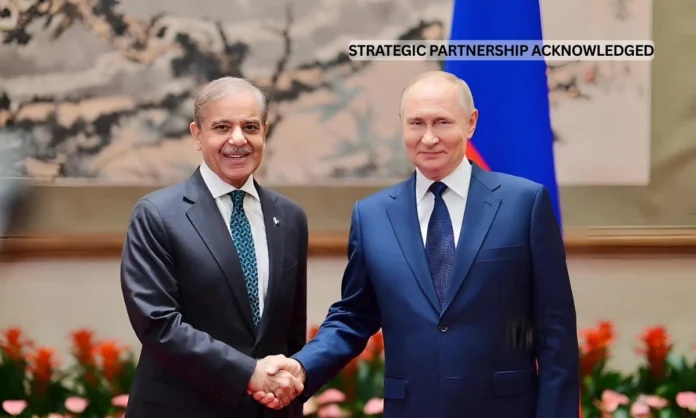Key Highlights:
- Pakistan’s Prime Minister Shehbaz Sharif acknowledges his country respects Russia’s relations with India during talks with President Putin at the SCO summit
- Russia’s bilateral trade with Pakistan reached $1.81 billion in 2024, representing a 100% increase from the previous year
- Both leaders agreed to strengthen cooperation in energy, agriculture, defense, and trade connectivity while advancing the $14 billion Russian investment package in Pakistan’s energy sector
Pakistan Prime Minister Shehbaz Sharif made a significant diplomatic statement during his meeting with Russian President Vladimir Putin in Beijing, where Shehbaz Sharif acknowledges Pakistan’s respect for Russia’s historic ties with India while pursuing its own strengthened partnership with Moscow. The bilateral discussion, held on the sidelines of the Shanghai Cooperation Organisation summit, demonstrated Pakistan’s pragmatic approach to regional diplomacy amid evolving geopolitical alignments.
Pakistan’s Strategic Diplomatic Positioning
The moment when Shehbaz Sharif acknowledges Russia’s relationship with India represented a notable shift in Pakistan’s traditional diplomatic rhetoric. The prime minister explicitly told Putin that Pakistan respects Russia’s relationship with India, describing it as “perfectly fine” while emphasizing Pakistan’s desire to build equally strong bilateral connections with Moscow. This instance where Shehbaz Sharif acknowledges regional complexity reflects Pakistan’s mature diplomatic approach in navigating complex regional relationships.
Held a very warm and constructive meeting with H.E. President Vladimir Putin of the Russian Federation, on the sidelines of my ongoing visit to Beijing.
— Shehbaz Sharif (@CMShehbaz) September 2, 2025
We fondly recalled our last meeting in Astana (2024) & expressed satisfaction at the positive momentum of our bilateral ties… pic.twitter.com/fNlzRVTsAj
- Balancing Regional Relations: Shehbaz Sharif acknowledges Russia’s support for Pakistan as “a balancing act in the region”
- Complementary Partnerships: The Pakistani leader described potential partnerships as “supplementary and complementary for the good and progress of the region”
- Strategic Alignment: Both countries agreed that strengthened bilateral ties would contribute to regional stability and prosperity
The prime minister’s statements highlighted his view of Putin as “a very dynamic leader” and confirmed that both nations are “moving in the right direction” in their bilateral engagement. When Shehbaz Sharif acknowledges these positive developments, it signals Pakistan’s commitment to diversifying its international partnerships.
Economic Cooperation and Trade Expansion
The economic dimension has shown remarkable growth, with bilateral trade reaching $1.81 billion in 2024, marking a 100% increase from previous levels. This substantial expansion reflects both countries’ commitment to diversifying their economic partnerships beyond traditional allies, particularly as Shehbaz Sharif acknowledges the untapped potential in Russia-Pakistan commercial relationships.
Russian investments in Pakistan’s energy sector remain central to strengthened bilateral ties, with Moscow committed to a comprehensive $14 billion investment package. The PakStream Gas Pipeline Project represents the largest component, with $10 billion allocated for offshore pipeline development, $2.5 billion for the North-South pipeline project, and $1.5 billion for underground storage facilities.
- Energy Partnership: Russia’s LNG supply agreements support Pakistan’s growing energy demands of 1.5 billion cubic feet daily
- Agricultural Cooperation: Both countries signed protocols promoting agricultural sector collaboration
- Industrial Development: Russian companies are exploring steel mill construction and manufacturing partnerships in Pakistan
Putin emphasized the need to enhance bilateral trade volumes further, recognizing Pakistan as “a traditional partner” in Asia while Shehbaz Sharif acknowledges untapped potential in commercial relationships.

Pakistan-Russia key sector cooperation: Trade, Energy, Agriculture, Defense (2023-2025)
Regional Security and Multilateral Engagement
The discussion extended beyond bilateral concerns to encompass regional security challenges and multilateral cooperation frameworks. Both leaders addressed situations in Afghanistan, the Middle East conflict, and the ongoing Ukraine crisis, demonstrating their shared commitment to regional stability. Shehbaz Sharif acknowledges that such cooperation is essential for maintaining regional and global security.
The Shanghai Cooperation Organisation provides an institutional framework for advancing bilateral ties within broader Central Asian security architecture. Putin noted the importance of collaboration within SCO structures, viewing such cooperation as essential for regional and global security maintenance, while Shehbaz Sharif acknowledges the organization’s growing significance in regional affairs.
- SCO Framework: Both countries coordinate positions on regional issues through SCO mechanisms
- Security Cooperation: Joint approaches to counterterrorism and regional stability
- Diplomatic Coordination: Regular high-level consultations strengthen bilateral ties in international forums
Shehbaz Sharif acknowledges Putin’s invitation to attend the SCO Heads of Government Summit in November, indicating continued momentum in diplomatic engagement at the highest levels.
Strategic Implications for South Asian Balance
The evolution of Pakistan-Russia relations carries significant implications for South Asian strategic dynamics, particularly given Russia’s historical partnership with India and Pakistan’s traditional alignment with Western powers during the Cold War era. This diplomatic realignment reflects changing geopolitical realities in the region, as Shehbaz Sharif acknowledges the need for strategic balance in foreign policy.
Russia’s engagement with Pakistan serves multiple strategic purposes, including diversifying its Asian partnerships amid Western sanctions and demonstrating to India that Moscow maintains alternative regional options. For Pakistan, strengthened bilateral ties provide economic opportunities and strategic balance amid tensions with traditional partners, particularly as Shehbaz Sharif acknowledges the importance of maintaining independent foreign policy choices.
- Geopolitical Balance: Alternative partnerships amid shifting regional alignments
- Economic Diversification: Russian energy investments reduce Pakistan’s dependence on traditional suppliers
- Strategic Autonomy: Both countries pursue independent foreign policies through enhanced cooperation
The meeting also addressed long-standing global disputes, including Kashmir and Palestine, indicating that bilateral cooperation encompasses shared perspectives on international conflicts and territorial issues. Shehbaz Sharif acknowledges Russia’s understanding of Pakistan’s position on these matters.
Future Prospects and November Summit
Looking ahead, the bilateral trajectory appears set for continued expansion, with both leaders expressing commitment to regular high-level engagement and practical cooperation across multiple sectors. When Shehbaz Sharif acknowledges Putin’s November summit invitation, it signals sustained momentum in relationship development.
The upcoming SCO Heads of Government Summit will provide another opportunity to advance bilateral ties within the multilateral framework, particularly focusing on trade connectivity projects that link Central and South Asian economies. The proposed trade corridor connecting Belarus, Russia, Kazakhstan, Uzbekistan, Afghanistan, and Pakistan represents a tangible outcome of strengthened cooperation, as Shehbaz Sharif acknowledges the project’s regional significance.
Both countries recognize the potential for bilateral ties to contribute to regional connectivity and economic integration, with Russia’s eastward pivot strategy aligning with Pakistan’s quest for economic diversification and energy security. The pragmatic approach demonstrated in Beijing suggests that cooperation will continue evolving based on mutual interests rather than ideological considerations, particularly as Shehbaz Sharif acknowledges the benefits of pragmatic diplomacy in the current global context.


